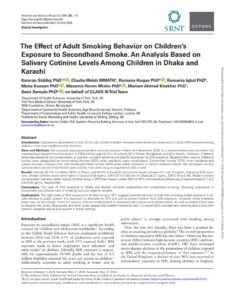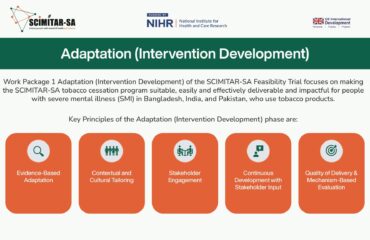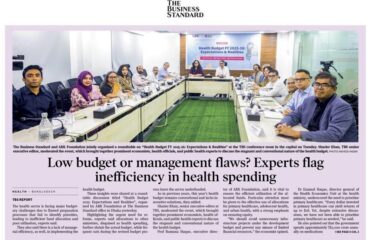
Exposure to secondhand smoke (SHS) risks children’s health. However, biomarkers are rarely used to study SHS exposure among children in low- and middle-income countries.
We analyzed cross-sectional data collected between March and November 2022 for a cluster-randomized controlled trial investigating a Smoke-Free Intervention in 2769 children aged 9–15 in 74 schools (34 in Dhaka, Bangladesh, and 40 in Karachi, Pakistan). Children’s saliva was tested for the concentration of cotinine—a highly sensitive and specific biomarker for SHS exposure. Based on their reports, children’s homes were categorized as Nonsmoking Homes (NSH) when residents were nonsmokers; Smoke-free Homes (SFH) when residents and visitors smoked outdoors only; and Smoke-permitted Homes (SPH) when either residents or visitors smoked indoors. We compared cotinine concentrations across these home types and the two cities using a proportional odds model.




